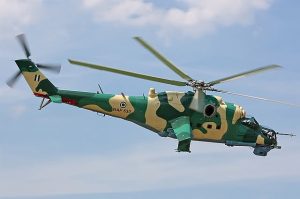South Koreans head to polls despite coronavirus outbreak

Millions of South Koreans are expected to cast their vote in Wednesday’s parliamentary election for the 300 members of the National Assembly in an election that is seen as a mid-term referendum for the country’s President Moon Jae-in and his party. More than a quarter of the country’s 44 million voters cast their ballot early — a record proportion of early voters. South Korea is the first country with a significant outbreak to hold a nationwide election since the pandemic began, which has infected at least 10,560 people in South Korea alone. But South Korea’s government has won praise for its handling of the crisis, and already more than 7,500 people in the country have recovered. As of 3 p.m. local time, 56.5% of registered voters had cast their ballot — including those who voted early. That’s 10 percentage points higher than the proportion who had voted at same time in the last parliamentary election in 2016. At the last parliamentary election, the final turnout was 58%. It’s possible that this year’s turnout could exceed that, despite the difficult circumstances. Currently, Moon’s ruling Democratic Party holds 120 seats in the National Assembly compared with the 92 held by the conservative opposition party, United Future. Over the past few weeks, Moon’s coronavirus response has boosted his approval rating, according to Gallup Korea surveys, and Moon will be hoping that helps his party’s chances at this election. Full results are expected to be announced Thursday morning local time. At Seoul’s Samseon-dong polling station, stickers on the ground outside indicated where voters should stand so that they are spaced at least one meter (three feet) apart from one another as they queue up to cast their ballot. At the door, voters are handed masks and gloves and a polling station officer takes their temperature. Anyone with a temperature of more than 37.5 degrees Celsius (99.5 degrees Farenheit) is required to vote in a special booth. While all polling booths are regularly disinfected.As voters leave the station, they can discard their gloves in a box. There are also special precautions for those who are sick with coronavirus or quarantined at home.Voting booths have been set up at government-run isolation centers. Initially, those under self-quarantine were unable to vote, but the authorities have introduced provisions meaning they will be allowed to leave their house to vote after polling booths close to the public at 6 p.m. on Wednesday.Experts warn that voting during a pandemic may result in a lower turnout, as voters may be too concerned for their health to head to the polls.But voters CNN talked to ahead of the election were supportive of the decision to go ahead, and some said the pandemic made voting even more important. While election campaigns in the country are often festive, featuring K-pop style dance troupes, this election season has been more sedate. Candidates wore gloves and face masks as they campaigned on the streets of Seoul.CNN’s Yoonjung Seo, Sophie Jeong and Paula Hancocks contributed reporting from Seoul.







